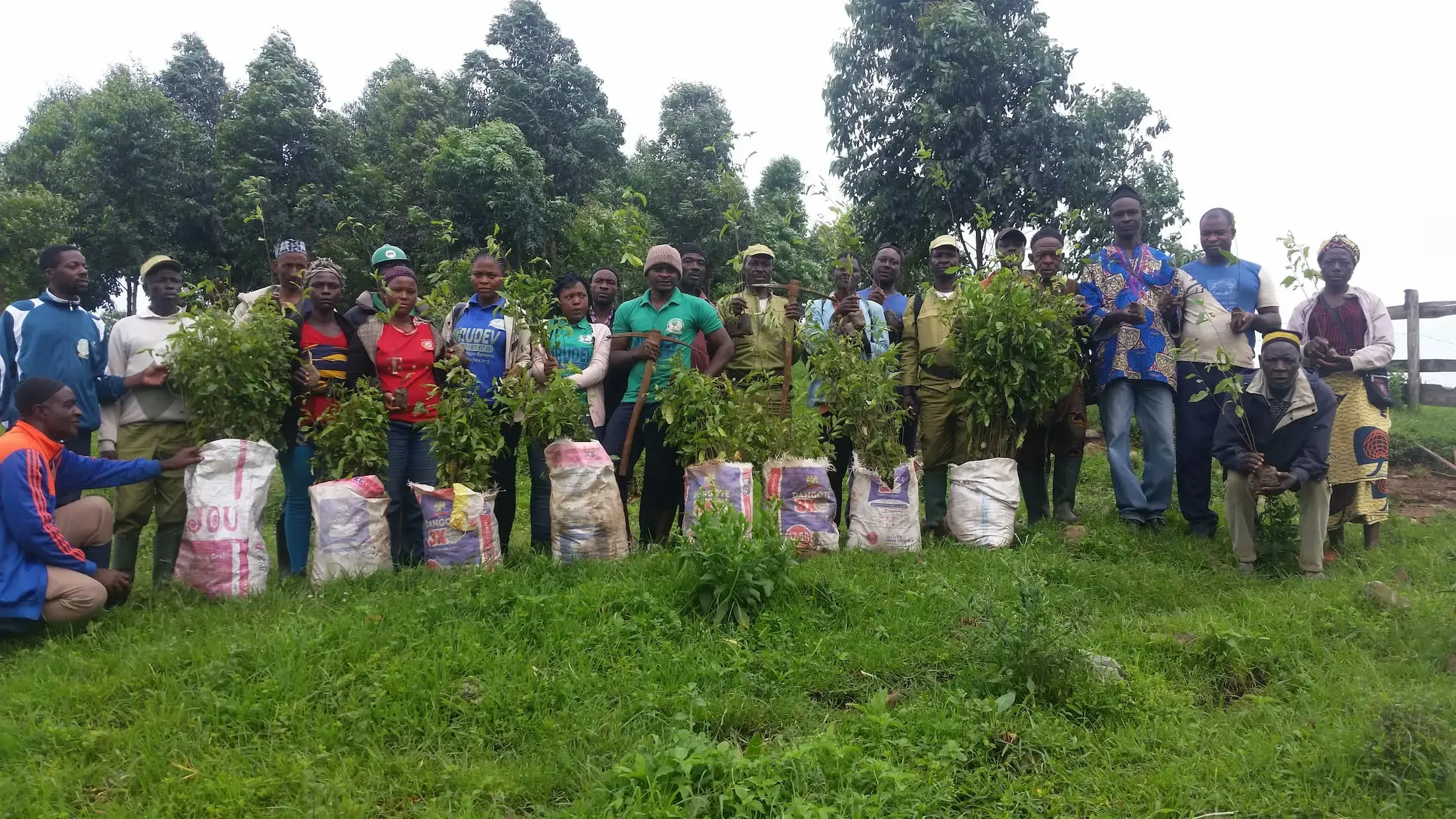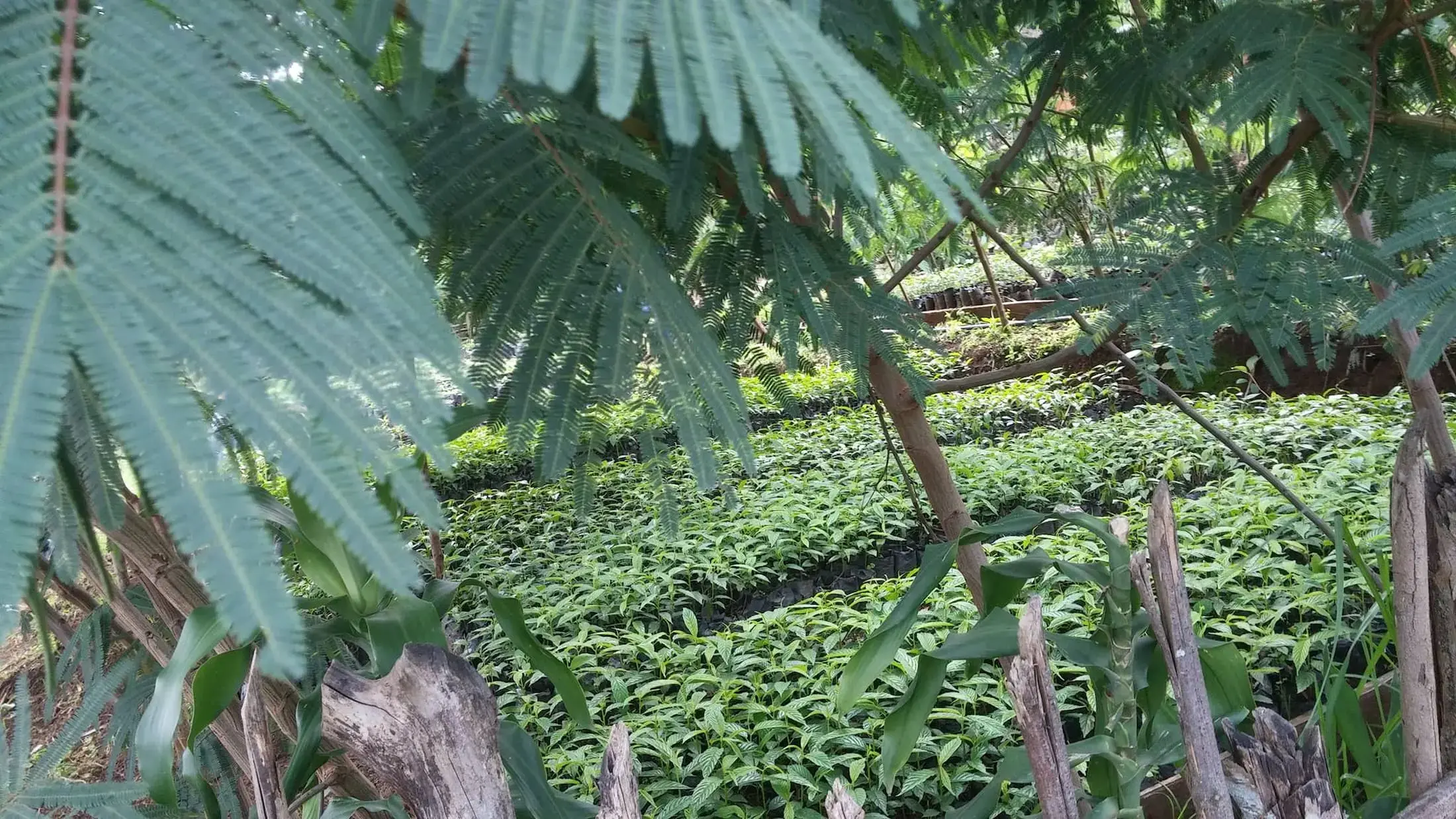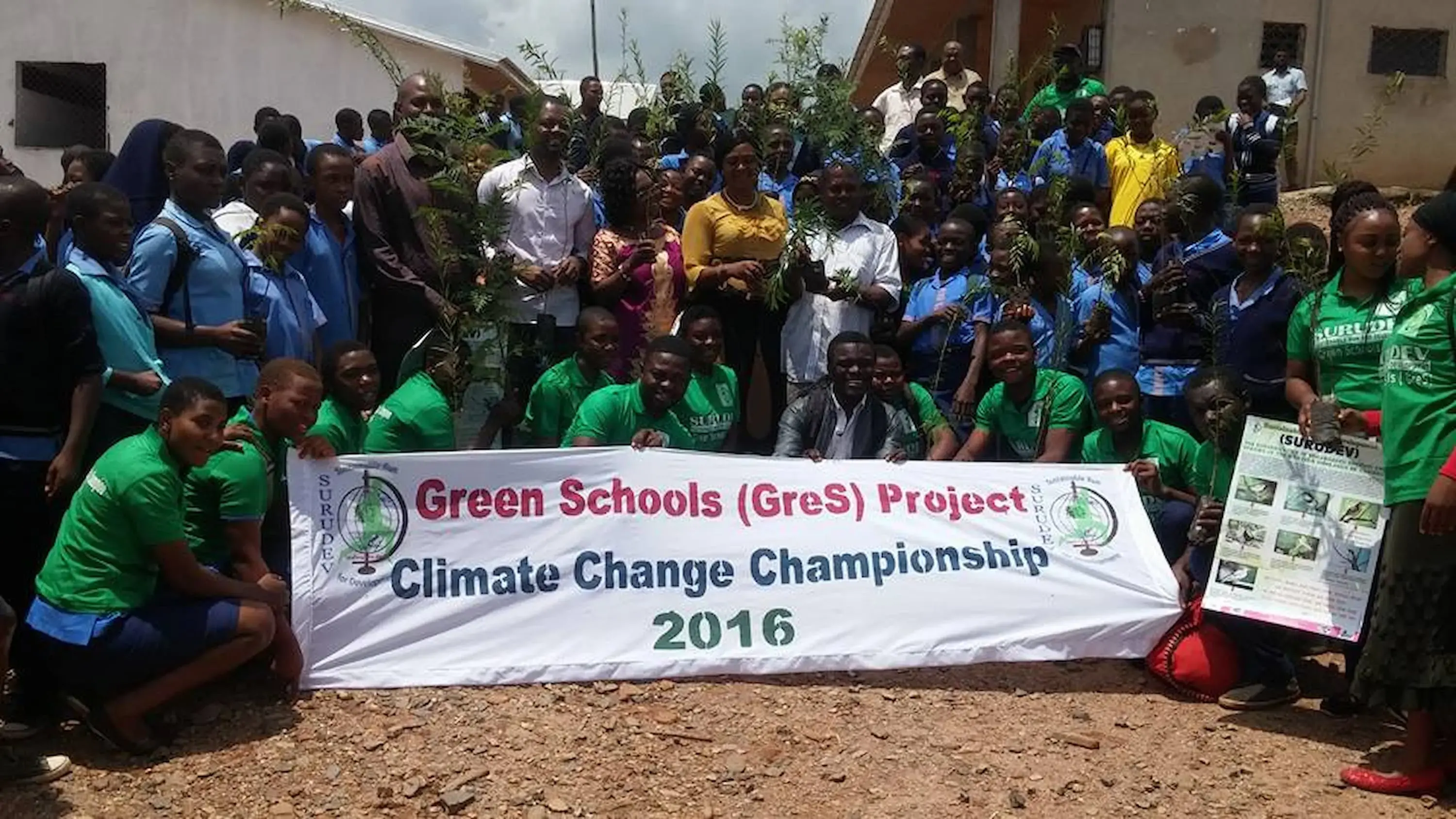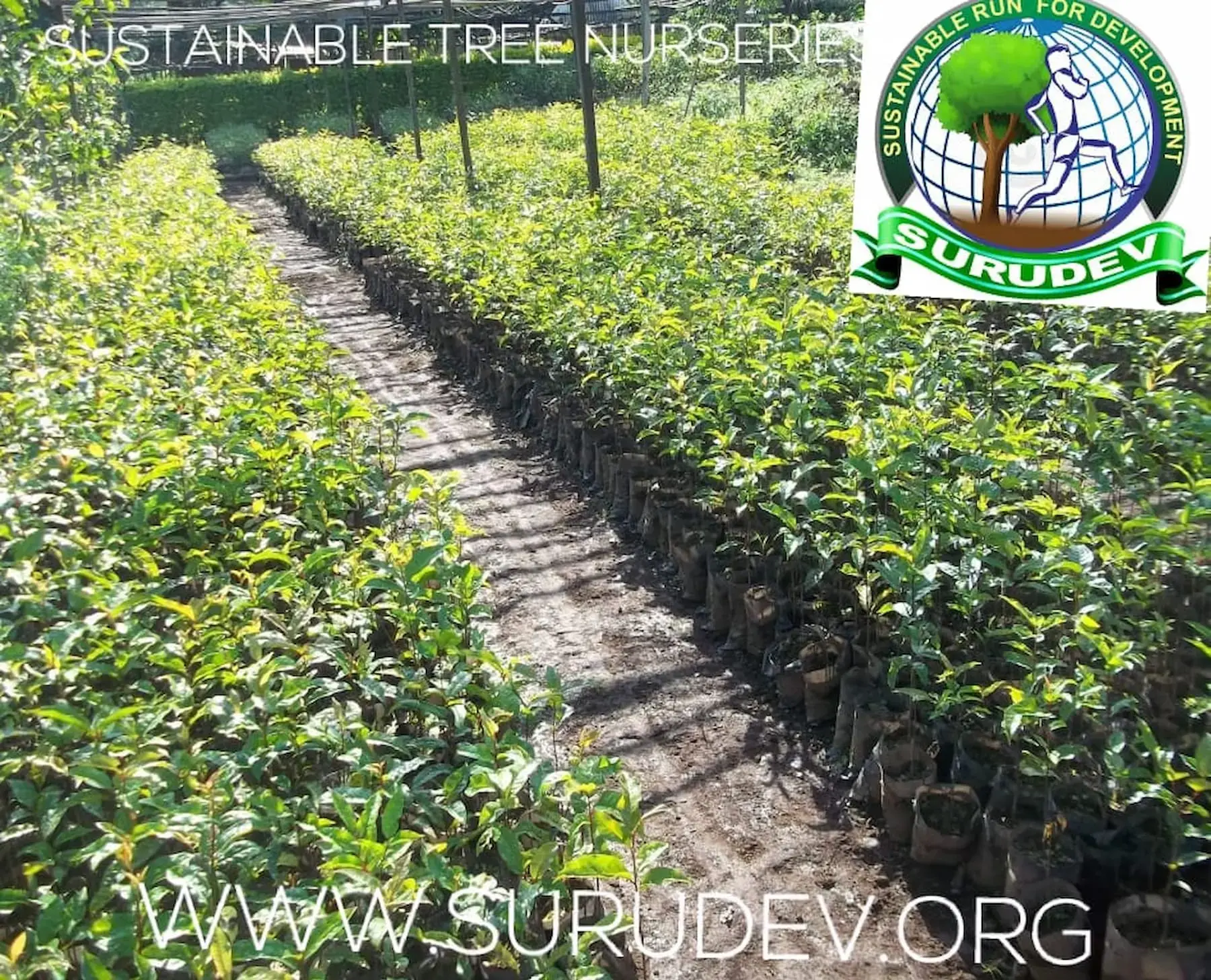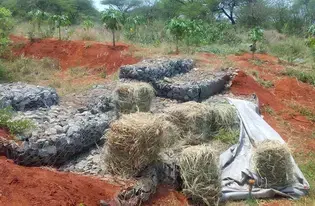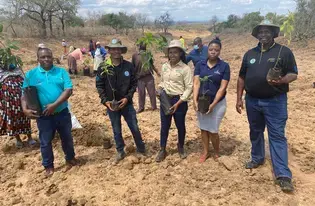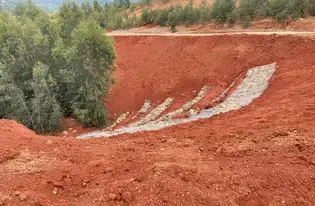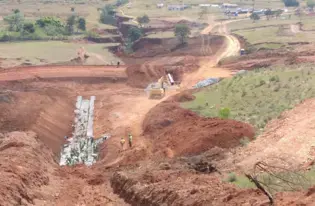Cameroon has faced a deepening crisis since 2016. As unrest spreads and people are displaced, they enter natural ecosystems to make new homes. To survive, they are forced cut trees and destroy the forests. Kari Jackson Bongda, the executive director of Sustainable Run for Development (SURUDEV), says that conflict has affected not only local plants but also animals, like chimpanzees. “Many times, people flee into the forest areas. We also have a situation whereby even our eco-guards in the Kom-Wum forest fled the forest because many abusive activities were going on in that reserve,” he says.
SURUDEV, founded in 2007, has the aim to reduce this ecological degradation in Cameroon through landscape restoration, biodiversity conservation, and renewable energy promotion. It is building on the Cameroonian government’s pledge to restore more than 12 million hectares of deforested and degraded land by 2030. These forests are home to the endangered Nigeria-Cameroon Chimpanzee, which SURUDEV is working with community members to protect in the Kom-Wum Forest Reserve. For that change to become permanent, SURUDEV has trained 200 community leaders to make a living from gardening, agroforestry, bee keeping, and other jobs that keep them from cutting down the forest.
To extend their work, the organization received a grant from TerraFund for AFR100, an initiative of World Resources Institute, One Tree Planted, and Realize Impact that finances Africa's top restoration enterprises and projects, to help them achieve their targets. “Our plan is to restore the Njising-Tabenken community forest. This forest provides clean water and fertile soil to over 50,000 people that live there. We will improve agriculture through a sustainable model and introduce climate-smart crops and entrepreneurship,” Kari explains.
By respecting local customs while instilling a progressive mindset, SURUDEV nudges communities into valuing the forest and its trees as core to their prosperity. Critically, the organization’s participatory programs involve traditional leaders. “We ensure they actively participate at every level, especially in our learning component. That ensures sustainability and the longevity of the project,” Kari says. Habib Ngounou started cutting trees from the forest at the age of 12. By the time the crisis began, he regularly cut trees and sold the wood to make ends meet. “I couldn’t imagine the damage I was causing. I was only interested in making money to take care of my family,” he says. Today, he’s one of the most enthusiastic beneficiaries of the reforestation campaign brought by SURUDEV. The small farms that he owns is surrounded by trees that he has planted, many of which bear tasty fruit.
Even in the most hostile environment, the promise of restoration can bring hope to people like Hasib that are living on the edge of violence.
